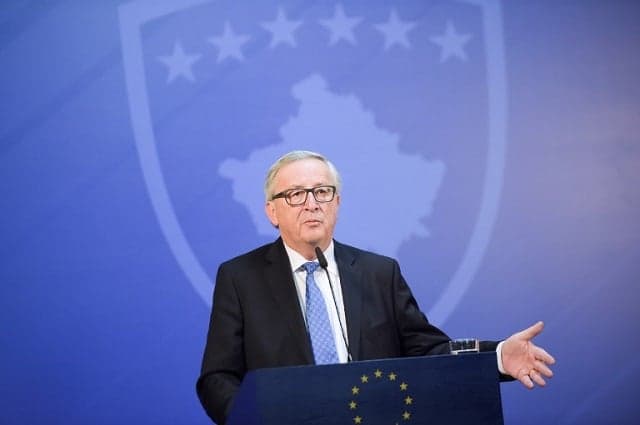EU gives Italy a warning over fragile economy

The European Commission called on Italy to step up reforms on Wednesday, potentially putting it on a collision course with a yet unformed government in Rome, which could feature anti-establishment and eurosceptic forces that won elections this weekend.
The commission, the vast EU bureaucracy that monitors the state of national economies, warned a total 11 member states that their economies were excessively vulnerable to external shocks, but all eyes were on Italy where populists campaigned on a pledge to ignore diktats from Brussels.
In its semi-annual breakdown of national economies, the commission acknowledged EU states had enacted ambitious reforms, but warned that several still needed to further fix public spending. It said the European economy was growing robustly, offering countries a chance to push through even more changes to avert a crisis if things turned worse.
-
What does Italy's election result mean for the EU?
-
Understanding the election result, and what happens now?
-
What next for Italy? The post-election scenarios
Italy, along with Cyprus and Croatia, found itself under the EU's microscope for "excessive imbalances", which required extra reform efforts, the commission said.
"Italy's ongoing recovery offers a window of opportunity to boost the reform momentum," the commission said in its roughly 50-page report on the country.
While this could put Brussels on collision course with Rome, the commission is under intense pressure to follow through with its rules on public spending after several member states accused it of turning a blind eye to rule breakers. Eight northern European countries, led by eurozone heavyweight the Netherlands, said they would oppose further EU economic integration without first making sure countries obey existing rules.
A stronger economic and monetary union "starts with implementing structural reforms and respecting the Stability and Growth Pact," the eight argued, referring to the EU's fiscal rules.
For a wide range of reasons, Bulgaria, France, Germany, Ireland, the Netherlands, Portugal, Spain and Sweden are the other eight states that need to address economic policies, the commission said.
READ ALSO: How international politicians reacted to the Italian election result
Comments
See Also
The commission, the vast EU bureaucracy that monitors the state of national economies, warned a total 11 member states that their economies were excessively vulnerable to external shocks, but all eyes were on Italy where populists campaigned on a pledge to ignore diktats from Brussels.
In its semi-annual breakdown of national economies, the commission acknowledged EU states had enacted ambitious reforms, but warned that several still needed to further fix public spending. It said the European economy was growing robustly, offering countries a chance to push through even more changes to avert a crisis if things turned worse.
- What does Italy's election result mean for the EU?
- Understanding the election result, and what happens now?
- What next for Italy? The post-election scenarios
Italy, along with Cyprus and Croatia, found itself under the EU's microscope for "excessive imbalances", which required extra reform efforts, the commission said.
"Italy's ongoing recovery offers a window of opportunity to boost the reform momentum," the commission said in its roughly 50-page report on the country.
While this could put Brussels on collision course with Rome, the commission is under intense pressure to follow through with its rules on public spending after several member states accused it of turning a blind eye to rule breakers. Eight northern European countries, led by eurozone heavyweight the Netherlands, said they would oppose further EU economic integration without first making sure countries obey existing rules.
A stronger economic and monetary union "starts with implementing structural reforms and respecting the Stability and Growth Pact," the eight argued, referring to the EU's fiscal rules.
For a wide range of reasons, Bulgaria, France, Germany, Ireland, the Netherlands, Portugal, Spain and Sweden are the other eight states that need to address economic policies, the commission said.
READ ALSO: How international politicians reacted to the Italian election result
Join the conversation in our comments section below. Share your own views and experience and if you have a question or suggestion for our journalists then email us at [email protected].
Please keep comments civil, constructive and on topic – and make sure to read our terms of use before getting involved.
Please log in here to leave a comment.